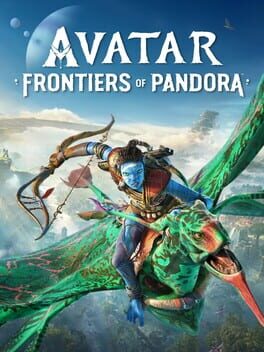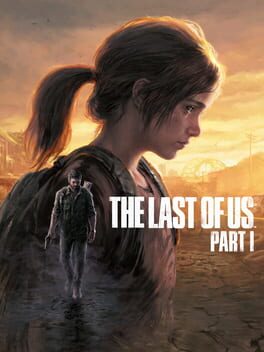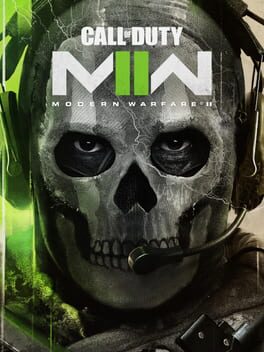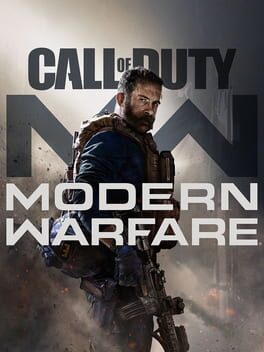General_Mosh
Going into American Nightmare, I had some pretty low expectations. I had offhandedly heard about it while listening to some stuff about Alan Wake 2, which I plan to play next, and I looked it up to see if it was really worth playing. I'm a bit of a completionist when it comes to stories I'm into, I want to see as much of the plot as I can. The consensus was that yeah, this game contains some plot elements, but mostly it just exists as an arcade shooter that Remedy rushed through the development process.
Don't get me wrong, this is basically a forgotten spin-off game that was never meant to be a full installment in the franchise, and that's eminently clear from the first ten or so minutes of the game. Much less was done here in terms of design, writing, and development. This game largely lacks the atmosphere that defines Remedy's work. It's basically just comprised of three small levels that the player beats a handful of times, each time moving the plot forward slightly. But that tiny scope kind of works to this games benefit. Because Alan Wake's American Nightmare is fun, maybe even more fun than the original game.
The combat here isn't anything revolutionary, it's just a better version of what I played in Alan Wake Remastered. It feels more fluid, there's more variety in weapons and enemies, and things generally move at a faster pace. Twelve years later the game still looks pretty good, I enjoyed the new desert Southwest setting, and Alan Wake's character model is solid. Contrary to what I'd read, I never found the combat to get stale, and I even checked out the arcade mode after I'd completed the campaign. If I wasn't so excited to move on to Alan Wake 2, I'd have probably spent at least a couple more hours with this game.
As far as the story goes, I genuinely liked it. The time loop element is a cool addition, Mr. Scratch is an interesting if not particularly compelling concept (I like that they played with the doppelganger thing again later in Control), and the ways that each level changed over the course of the story kept things fresh and interesting. Alan Wake himself feels like an evolved version of the character - a man who's gotten his wits about him in the two years he's spent in darkness. And I even enjoyed collecting the manuscript pages almost as much as I did in the original game. While I can't for the life of me remember the names of any of the supporting characters, I thought the almost schlocky voice acting was charming, and actually laughed at one or two of Alan Wake's one-liners.
Is this a masterpiece or a must-play addition to the franchise? Absolutely not. But I really enjoyed it, and I'm glad I checked it out. If you like Alan Wake, I'd recommend it to you too.
Don't get me wrong, this is basically a forgotten spin-off game that was never meant to be a full installment in the franchise, and that's eminently clear from the first ten or so minutes of the game. Much less was done here in terms of design, writing, and development. This game largely lacks the atmosphere that defines Remedy's work. It's basically just comprised of three small levels that the player beats a handful of times, each time moving the plot forward slightly. But that tiny scope kind of works to this games benefit. Because Alan Wake's American Nightmare is fun, maybe even more fun than the original game.
The combat here isn't anything revolutionary, it's just a better version of what I played in Alan Wake Remastered. It feels more fluid, there's more variety in weapons and enemies, and things generally move at a faster pace. Twelve years later the game still looks pretty good, I enjoyed the new desert Southwest setting, and Alan Wake's character model is solid. Contrary to what I'd read, I never found the combat to get stale, and I even checked out the arcade mode after I'd completed the campaign. If I wasn't so excited to move on to Alan Wake 2, I'd have probably spent at least a couple more hours with this game.
As far as the story goes, I genuinely liked it. The time loop element is a cool addition, Mr. Scratch is an interesting if not particularly compelling concept (I like that they played with the doppelganger thing again later in Control), and the ways that each level changed over the course of the story kept things fresh and interesting. Alan Wake himself feels like an evolved version of the character - a man who's gotten his wits about him in the two years he's spent in darkness. And I even enjoyed collecting the manuscript pages almost as much as I did in the original game. While I can't for the life of me remember the names of any of the supporting characters, I thought the almost schlocky voice acting was charming, and actually laughed at one or two of Alan Wake's one-liners.
Is this a masterpiece or a must-play addition to the franchise? Absolutely not. But I really enjoyed it, and I'm glad I checked it out. If you like Alan Wake, I'd recommend it to you too.
There's a point somewhere in the middle of this game's third act where I thought "wow, they're really about to deliver something incredible here, why is the good stuff buried so deep into this game?" Unfortunately, that feeling evaporated not long after, the writing once again failing to meet the mark.
Avatar: Frontiers of Pandora is an absurdly beautiful game, featuring the flora and fauna of Pandora in all of their alien glory. Seriously, this is one of the best looking games I've had the pleasure of playing on my PS5. The game also delivers a movement system that feels far better than I expected it would, and a deep resource gathering and crafting system that rewards delicacy and planning in meaningful ways. Unfortunately, other than gather and play the main story missions, there's not a lot to do in the stunning world this game provides. The side content is largely boring and forgettable. Worse yet, that's also how I'd describe most of the plot. I really like both Avatar movies, so I was probably an easier get than most, but by the end of this game I was almost completely disinterested in the story's conclusion. I think with some more work this could have been a really solid RPG, with narrative decision making and good story-integrated side content. Alas, it's clear the effort here went into the game world, not the plot that takes place within it.
Though decent, most of the combat in this game didn't really capture me either. The bow feels good, but it's somewhat limited in its use, and the enemy variety isn't really there. It's mostly either foot soldiers or variously skinned mechs that generally act the same, and while I enjoyed clearing out the outposts I never went seeking combat for its own sake. I'm just a sucker for a game focused on reclaiming territory. At 99 hours (hey, I did say I loved Avatar), I can't say that I didn't enjoy my experience, at least a little. But it's not a game I think I'd recommend. With as many hours as I've sunk into it, I'll probably come back for the DLC. Maybe I'll find something more to enjoy here. But I'm not as excited as I'd hoped I would be.
Avatar: Frontiers of Pandora is an absurdly beautiful game, featuring the flora and fauna of Pandora in all of their alien glory. Seriously, this is one of the best looking games I've had the pleasure of playing on my PS5. The game also delivers a movement system that feels far better than I expected it would, and a deep resource gathering and crafting system that rewards delicacy and planning in meaningful ways. Unfortunately, other than gather and play the main story missions, there's not a lot to do in the stunning world this game provides. The side content is largely boring and forgettable. Worse yet, that's also how I'd describe most of the plot. I really like both Avatar movies, so I was probably an easier get than most, but by the end of this game I was almost completely disinterested in the story's conclusion. I think with some more work this could have been a really solid RPG, with narrative decision making and good story-integrated side content. Alas, it's clear the effort here went into the game world, not the plot that takes place within it.
Though decent, most of the combat in this game didn't really capture me either. The bow feels good, but it's somewhat limited in its use, and the enemy variety isn't really there. It's mostly either foot soldiers or variously skinned mechs that generally act the same, and while I enjoyed clearing out the outposts I never went seeking combat for its own sake. I'm just a sucker for a game focused on reclaiming territory. At 99 hours (hey, I did say I loved Avatar), I can't say that I didn't enjoy my experience, at least a little. But it's not a game I think I'd recommend. With as many hours as I've sunk into it, I'll probably come back for the DLC. Maybe I'll find something more to enjoy here. But I'm not as excited as I'd hoped I would be.
2021
Before Alan Wake 2 released late last year, I hadn't played any Remedy game other than 2019's Control. An incredible experience, that game is one of my favorites. After I finished it, I knew that eventually I'd have to try out some of the rest of the Remedy catalogue, but I just never got around to it. Thankfully, Remedy got around to me, releasing Alan Wake Remastered in 2021 and Alan Wake 2 just a few months ago.
Alan Wake is, first and foremost, a game that absolutely swims in atmosphere. From the titular character's narration to the soundtrack to the game mechanics themselves, everything here works beautifully to create a sense of creepiness and shadowy dread that perfectly accompanies the Pacific Northwest woods, mines, and logging camps that this game is primarily set in. 'Optional' manuscript pages, radio shows, and TV snips help reinforce the feeling that something just isn't right here, as a cast of great characters makes their way through the compellingly written plot. And it should be noted that Alan Wake himself is voice acted with immense narrative talent. As a horror-adjacent story about the supernatural, this game is excellent. As a metatextual commentary on the nature of writing and weaving a story, it's even better. Remedy is truly unmatched in this department.
As far as the gameplay goes, Alan Wake isn't particularly revolutionary, but it is fun, and there are several standout sequences that break up the more common gameplay loop of point-wait-then-shoot. I enjoy horror, but I'm easily unnerved - Metro and The Last of Us are more than enough to get my heart beating fast. So I don't usually play games like this for very long periods of time. It's a testament to the essential fun-ness of the game that I could usually complete an episode or so every time I sat down, even if I'd occasionally grind against clunky movement and repetitive enemies. The game's DLC episodes - The Signal and The Writer - introduce more compelling gameplay in the form of additional environmental interaction, but I do hope the series' most recent installment offers something new in the gameplay department.
Alan Wake Remastered is a great game. The story is incredible, the setting is tonally near perfect, the soundtrack hits on every beat, the graphics are solid, and the gameplay is fun enough if not inspired. I won't soon forget Barry, the Andersons, or Wake himself. And I'm excited to take on the rest of the universe Remedy has created.
Alan Wake is, first and foremost, a game that absolutely swims in atmosphere. From the titular character's narration to the soundtrack to the game mechanics themselves, everything here works beautifully to create a sense of creepiness and shadowy dread that perfectly accompanies the Pacific Northwest woods, mines, and logging camps that this game is primarily set in. 'Optional' manuscript pages, radio shows, and TV snips help reinforce the feeling that something just isn't right here, as a cast of great characters makes their way through the compellingly written plot. And it should be noted that Alan Wake himself is voice acted with immense narrative talent. As a horror-adjacent story about the supernatural, this game is excellent. As a metatextual commentary on the nature of writing and weaving a story, it's even better. Remedy is truly unmatched in this department.
As far as the gameplay goes, Alan Wake isn't particularly revolutionary, but it is fun, and there are several standout sequences that break up the more common gameplay loop of point-wait-then-shoot. I enjoy horror, but I'm easily unnerved - Metro and The Last of Us are more than enough to get my heart beating fast. So I don't usually play games like this for very long periods of time. It's a testament to the essential fun-ness of the game that I could usually complete an episode or so every time I sat down, even if I'd occasionally grind against clunky movement and repetitive enemies. The game's DLC episodes - The Signal and The Writer - introduce more compelling gameplay in the form of additional environmental interaction, but I do hope the series' most recent installment offers something new in the gameplay department.
Alan Wake Remastered is a great game. The story is incredible, the setting is tonally near perfect, the soundtrack hits on every beat, the graphics are solid, and the gameplay is fun enough if not inspired. I won't soon forget Barry, the Andersons, or Wake himself. And I'm excited to take on the rest of the universe Remedy has created.
I don't usually sit through a game's credits after I've beaten it. But occasionally, like I did with Horizon Zero Dawn, I will sit and contemplate the experience I just had. That's what I did when I finished my last playthrough of The Last of Us Part Two.
Part Two was a game that engendered a huge amount of controversy, and while I think a lot of it was stupid, I want to acknowledge that some of it was reasonable. It's true that the game's pacing falls apart somewhat near the end, that the ending was not immediately satisfying, and that the game hammers the player over their head with its central moral message. These criticisms are warranted, and while I have thoughts, I'm not here to write a multi-thousand word defense of a group of writers and directors who have done more than enough defending themselves.
Nevertheless, Part Two, like Part One, is one of the greatest games I've ever played. It is a beautiful epic directed with the care and detail of a prestige television show, exciting and intoxicating through every minute of play. It's a technical marvel, and a masterful work of horror-adjacent fiction, each element carefully considered and chosen for the player's benefit. I'd have played this game for double the time I did, and still have wanted more at the end. The Last of Us Part Two is a stunning achievement, and I can't wait to see what Naughty Dog delivers out of this world next.
Part Two was a game that engendered a huge amount of controversy, and while I think a lot of it was stupid, I want to acknowledge that some of it was reasonable. It's true that the game's pacing falls apart somewhat near the end, that the ending was not immediately satisfying, and that the game hammers the player over their head with its central moral message. These criticisms are warranted, and while I have thoughts, I'm not here to write a multi-thousand word defense of a group of writers and directors who have done more than enough defending themselves.
Nevertheless, Part Two, like Part One, is one of the greatest games I've ever played. It is a beautiful epic directed with the care and detail of a prestige television show, exciting and intoxicating through every minute of play. It's a technical marvel, and a masterful work of horror-adjacent fiction, each element carefully considered and chosen for the player's benefit. I'd have played this game for double the time I did, and still have wanted more at the end. The Last of Us Part Two is a stunning achievement, and I can't wait to see what Naughty Dog delivers out of this world next.
Joel and Ellie are the heart and soul that rank this beautiful game among the best that I've ever played. Their relationship, and the way it evolves, still holds up as one of the best pieces of video game writing ever put to pixels. Combined with a rotating cast of excellent supporting characters, interesting and artfully post-apocalyptic locations, a perfectly moody soundtrack, and some genuinely smart moments of horror, this still stands out as probably the best game Naughty Dog has ever created. Now remade with the stunning graphics and smooth gameplay of Part Two, The Last of Us Part One is among the best games released so far in 2022. Easy five stars, and one of my favorite games of all time.
As I disclaimed in my Modern Warfare 2019 review, I dont play these games for multi-player. Sometimes I just enjoy a good shooter campaign. Which is why I was so disappointed by this game. Modern Warfare II takes a perfectly competent shooter and jams the campaign full of all kinds of stupid mechanics clearly aping better games. Few of them work, and most lead to frustrating difficulty spikes amid otherwise enjoyable missions. Combined with a story that feels like it's trying to crib a Jack Ryan novel, but in a less thoughtful or interesting way, this is a poor outing for the Modern Warfare series.
I don't usually play multiplayer games, and while I think Warzone is cool, Call of Duty is not the series that will buck that trend. That is to say, I'm reviewing this purely as a single player campaign.
Modern Warfare is a fun shooter that smartly reimagines the original MW games as a B-tier military and espionage thriller that fits right in with the likes of Jack Ryan on Amazon, or any of the many forgetful movies Netflix has dropped over the last couple years. Nonsensical at times, the story suffers on the replay. Nevertheless, it weaves a competent plot that keeps the player engaged as it winds through set pieces pulled straight from the [most sensational] headlines.
It's solid, and probably worth the play through, especially if you need a palate cleanser between denser narrative games.
Modern Warfare is a fun shooter that smartly reimagines the original MW games as a B-tier military and espionage thriller that fits right in with the likes of Jack Ryan on Amazon, or any of the many forgetful movies Netflix has dropped over the last couple years. Nonsensical at times, the story suffers on the replay. Nevertheless, it weaves a competent plot that keeps the player engaged as it winds through set pieces pulled straight from the [most sensational] headlines.
It's solid, and probably worth the play through, especially if you need a palate cleanser between denser narrative games.






